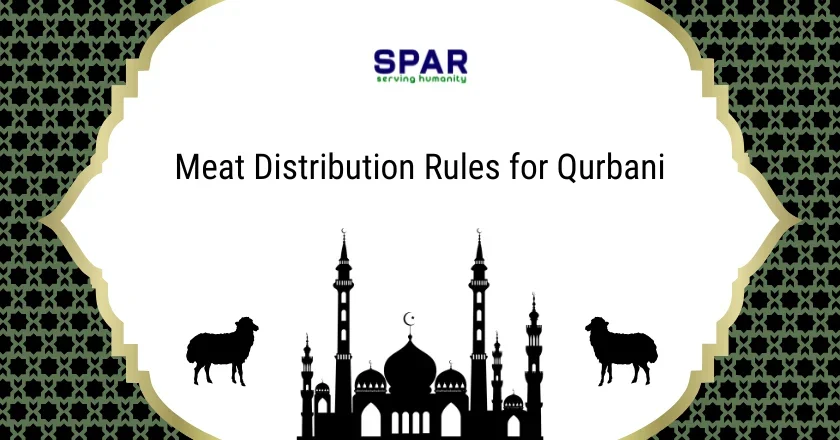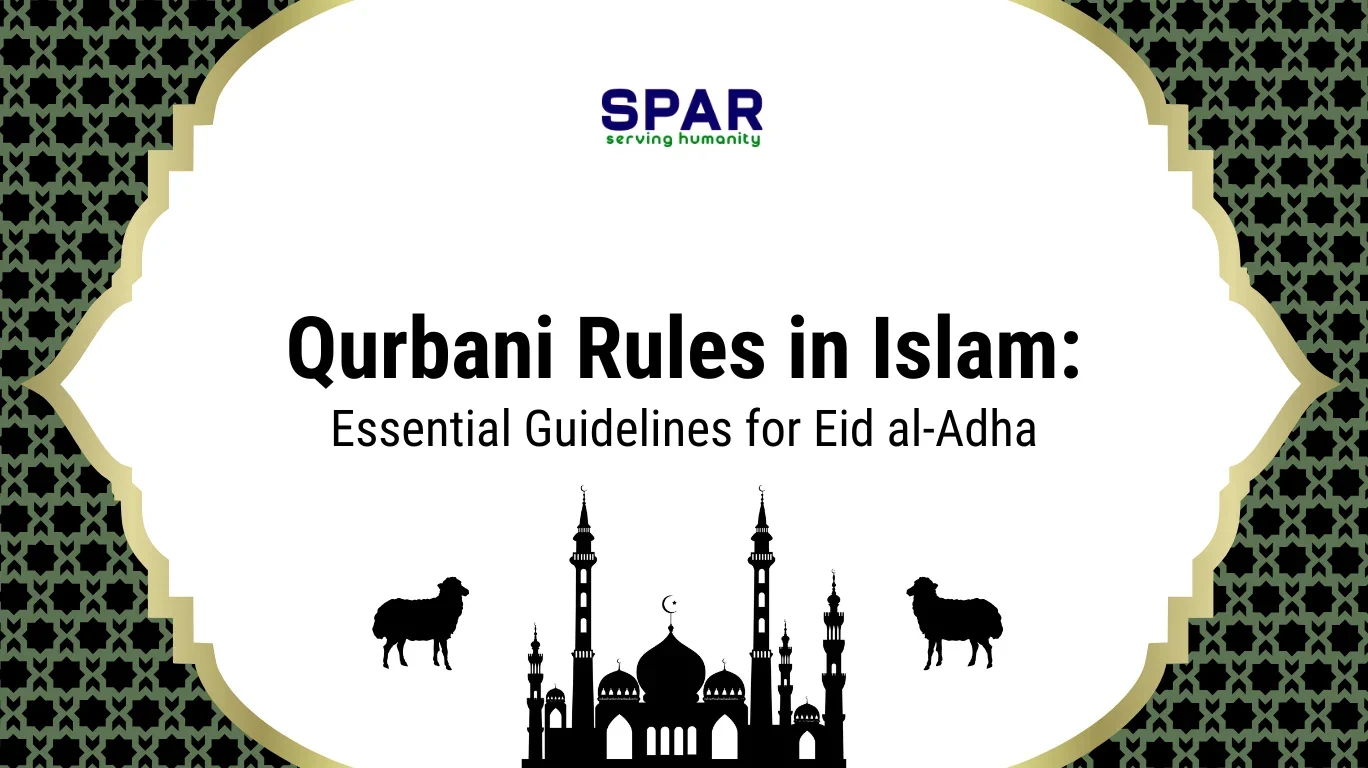Qurbani Rules in Islam: Important Guidelines You Must Know
If you are going to do Qurbani this Eid al-Adha, you should know about the Qurbani rules in Islam. The festival of Qurbani, or animal sacrifice, commemorates Prophet Ibrahim’s obedience to Allah’s command to sacrifice his son. Millions of Muslims around the world make animal sacrifices every year out of devotion and obedience. Do you understand who is required to perform Qurbani, which animals are acceptable, and the correct distribution of meat? Despite that, this is a step-by-step guide where you’ll clearly find all of the critical Qurbani rules. Read on to ensure your sacrifice is accepted and your Eid is meaningful this year.
What exactly is Qurbani?
What is Qurbani? Qurbani is the Islamic practice of sacrificing an animal during Eid al-Adha. It marks the celebration of Prophet Ibrahim (AS), who was prepared to sacrifice his son, Ismail, to fulfill Allah’s order. And Allah does have mercy and replaced Ismail with a ram.
Today, Qurbani is performed by Muslims following this way of faith and submission.
Who Must Perform Qurbani?
Qurbani is compulsory in Islam for every Muslim who:
- Are adults (past puberty)
- Are mentally stable
- Begat wealth (Nisab) other than the wealth needed for a person to live
- They have the means to pay and are not traveling.
If you possess these conditions, performing Qurbani becomes Waajib upon you.
When Should Qurbani Be Done?
The timing of the offering is critical in Qurbani. You should make your sacrifice after the Eid prayer. If you perform Qurbani before this prayer, it does not count.
The allowed period is:
- From the Beginning after Eid prayer on the 10th of Dhul Hijjah
- Until the sun sets on the 12th of Dhul Hijjah

Which Animals Can You Sacrifice?
Islam’s rules about Qurbani animals are as follows:
- Goats or sheep (must be 1 year at least)
- Bovine (cows or bulls, 2 years + old)
- Camel (over 5 years old)
No other animal is an option for you. Your choice of animal: How many people can share an animal? must be healthy, show no apparent signs of defects, and be of the exact specified age.
How many people can share an animal?
But Islam permits the pooling of particular animals among multiple people:
- A goat or sheep is equivalent to one individual Qurbani.
- Seven people can share one cow or camel.
This way of sharing cuts down on the costs but also encourages family and community bonding.
Proper Method of Slaughter (Zabiha)
Islam emphasizes compassion toward animals. Follow these guidelines when slaughtering:
- Lay the animal gently facing Qiblah (the direction of the Kaaba).
- Use a sharp knife to cause minimal suffering.
- Clearly say “Bismillah, Allahu Akbar” at the moment of slaughtering.
Performing slaughter correctly makes the sacrifice acceptable.

Meat Distribution Rules for Qurbani
The meat from the Qurbani should be split into thirds:
- You can save one part for your family.
- Send one section to family members and friends.
- This portion you give to the poor and needy.
This fair method guarantees that everyone celebrates Eid, including the poor.
Common Mistakes in Qurbani
Stay away from these common errors to ensure your Qurbani is accepted.
- Eid Qurban before the prayer.
- Animals that fail minimum age or health standards.
- Forgetting to recite Allah’s name when slaughtering.
- Selling a portion of the animal after it has been sacrificed.
Awareness of these mistakes can save you from missing out on Qurbani.
Can Women Perform Qurbani?
Yes! Women who meet the requirements are allowed to carry out Qurbani. There is no gender restriction in Qurbani or Islam. Women may commit slaughtering themselves if they follow the proper Islamic steps.
Can Qurbani Meat Be Shared with Non-Muslims?
Yes, Islam teaches us to be kind to neighbors and friends of any faith. If this is your Qurbani, you may share your meat even with non-Muslim neighbors to create harmony in the community.
Spiritual Benefits of Performing Qurbani
Spiritual Benefits of Qurbani:
- It is your submission and devotion to Allah.
- Then, it makes you remember the sacrifice of Prophet Ibrahim (AS).
- Purifying the Source of Your Wealth and Soul
- The organization brings Eid joy to deserving families.
- It strengthens bonds between members of the community.
These benefits serve as reminders that Qurbani is more than a ritual; it is an act of worship with significance.
Final Thoughts on Qurbani Rules in Islam
Several important points to remember in this regard: Performing Qurbani is an act of worship that brings you closer to Allah. The new date for Qurbani will be known globally; all you have to do is prepare to execute the correct Qurbani rules in Islam to sacrifice your animal in line with Sunnah and confirm that Allah accepted your sacrifice as meaningful and spiritually rewarding.
I hope this clarifies the question: Is Qurbani mandatory each year?
Yes, it’s something that Muslims must do every year if they fulfill certain conditions.
Would it be possible to do Qurbani on behalf of a deceased person?
Yes, performing voluntary Qurbani for our Muslim loved ones while they are still alive is both permissible and highly encouraged.
What will happen if I unintentionally slaughter an animal before Eid prayer?
After the Eid prayer, the sacrifice has to be repeated. The previous sacrifice is treated as invalid.
Am I allowed to sell a part of the Qurbani animal?
No, selling meat, skin, and other parts voids your Qurbani. None of the parts must be given away or utilized by your family.
What if the animal has slight defects?
Islamic rules permit minor imperfections. But if it causes severe defects—blindness, sickness, grievous injuries—the sacrifice is disqualified.
Can I do Qurbani outside my country?
Yes, you can carry out your Qurbani abroad through reputable Islamic charities if there is a greater need elsewhere.




 Secure
donation
Secure
donation